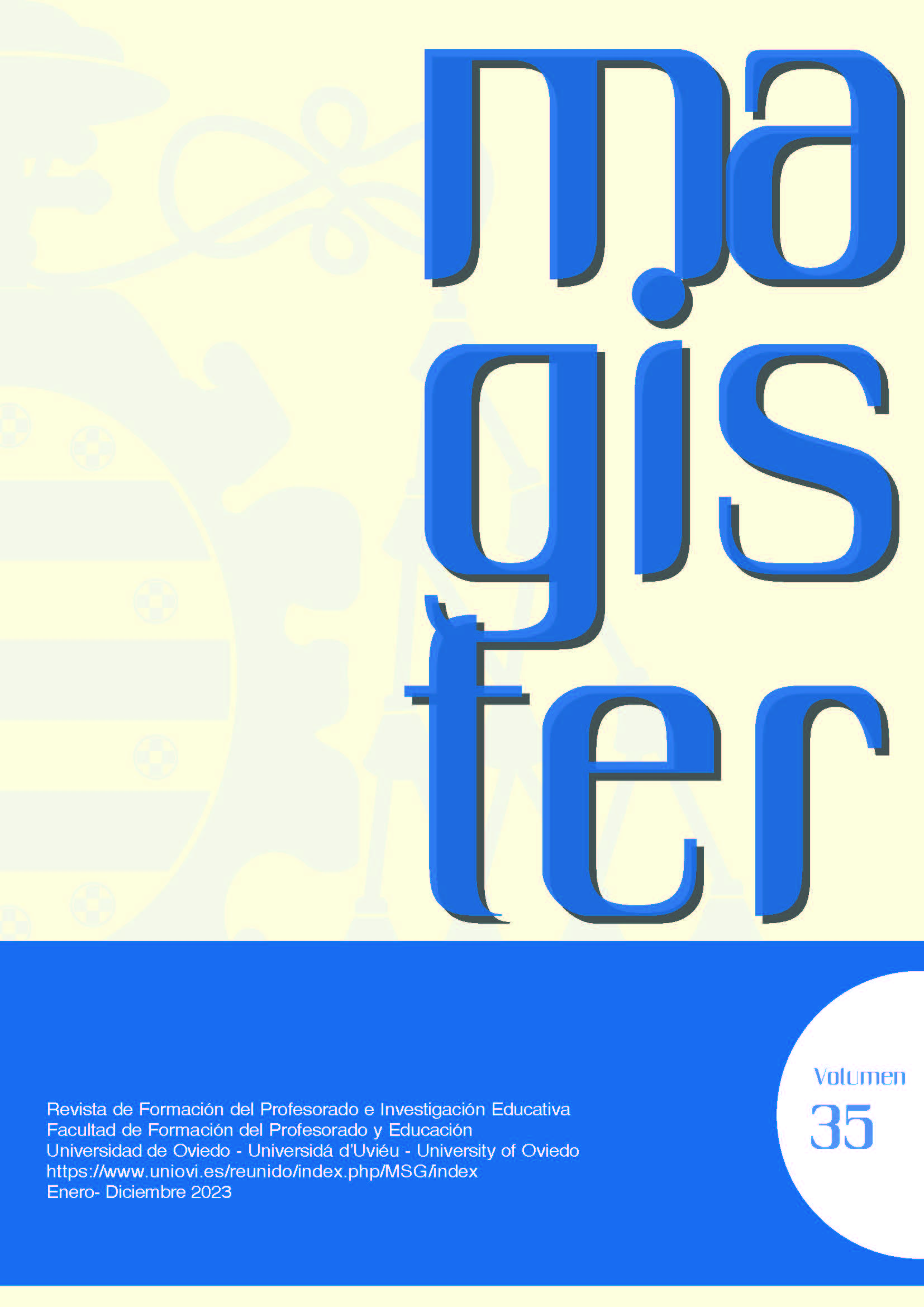Resumen
En estos últimos años, y debido a la crisis sanitaria, las posibilidades de colaboración internacional presenciales se vieron reducidas y la Universidad Miguel Hernández de Elche (UMH) elaboró una propuesta para considerar la colaboración internacional no presencial. El objetivo del estudio fue aplicar un protocolo basado en plataformas virtuales y herramientas colaborativas para fomentar la internacionalización de la formación en investigación. Se establecieron contactos entre laboratorios del centro de investigación matriz y otros centros colaboradores internacionales. Se asignó a los participantes un par internacional de cada centro. Se estableció un plan de trabajo, en cuatro fases entre enero y mayo de 2022, que contemplaba el uso de herramientas. En el proyecto piloto, cinco pares de estudiantes de doctorado completaron el plan de trabajo. Los resultados de las colaboraciones se publicaron en un Padlet colaborativo abierto. Se establecieron nichos de transferencia y colaboración futura entre grupos de investigación. Los estudiantes valoraron este proyecto como útil para conocer diferentes contextos culturales y sociales diferentes y ayudar a encontrar vías de transferencia de la investigación en el contexto socioeconómico cruzado, superando las limitaciones de movilidad que han sido impuestas en estos últimos años.
Citas
Bedford, J., Enria, D., Giesecke, J., Heymann, D. L., Ihekweazu, C., Kobinger, G., Lane, H. C., Memish, Z., Oh, M. don, Sall, A. A., Schuchat, A., Ungchusak, K., & Wieler, L. H. (2020). COVID-19: towards controlling of a pandemic. Lancet, 395(10229), 1015–1018. https://doi.org/10.1016/S0140-6736(20)30673-5
Bowen, K., Barry, M., Jowell, A., Maddah, D., & Alami, N. H. (2021). Virtual Exchange in Global Health: an innovative educational approach to foster socially responsible overseas collaboration. International Journal of Educational Technology in Higher Education, 18(1), 1–11. https://doi.org/10.1186/S41239-021-00266-X/METRICS
Braaten, M., & Windschitl, M. (2011). Working toward a stronger conceptualization of scientific explanation for science education. Science Education, 95(4), 639–669. https://doi.org/10.1002/SCE.20449
Case, S. J., Collins, S. L., & Wood, E. A. (2022). Global health-based virtual exchange to improve intercultural competency in students: Long-lasting impacts and areas for improvement. Frontiers in Public Health, 10, 1044487. https://doi.org/10.3389/FPUBH.2022.1044487
Council of Europe (2016). Competences for democratic culture – Living together as equals in culturally diverse democratic societies. http://book.coe.int
Council of Europe (2018). Reference Framework of Competences for Democratic Culture. http://www.coe.int
Dooly, M., & O’Dowd, R. (2018). Telecollaboration in the foreign language classroom: A review of its origins and its application to language teaching practices. In M. Dooly & R. O’Dowd (Eds.), In This Together: Teachers’ Experiences with Transnational, Telecollaborative Language Learning Projects (pp. 11–34). Peter Lang International Academic Publishers.
Fung, C., Maxwell, N., Powell, S., Benassai, M., Chunga, N., Corcoran, J., Barbosa, W., Lopez, M., Hanampa, B., Llaiqui-Condori, M., Delgado-Lazo, V., Mendoza, K., Astete, Y., Flor, M., Palacios, S., Valdovinos, B., Risco, J., Camargo, I., Jozefowicz, R., & Lizárraga, K. J. (2022). Virtual Adaptation of an International Exchange Program in Medical Education. Annals of Global Health, 88(1), 52. https://doi.org/10.5334/AOGH.3663
Gnesdilow, D., & Puntambekar, S. (2022). Comparing Middle School Students’ Science Explanations During Physical and Virtual Laboratories. Journal of Science Education and Technology 31, 191–202. https://doi.org/10.1007/s10956-021-09941-0
Kramsch, C. (1993). Context and Culture in Language Teaching. Oxford University Press. https://books.google.com.cu/books?id=73rFnM6qlrwC&printsec=frontcover#v=onepage&q&f=false
Leask, B. (2015). Internationalizing the Curriculum: Internationalization in Higher Education. Routledge. https://www.routledge.com/Internationalizing-the-Curriculum/Leask/p/book/9780415728157
Maldonado, M. J., Agudelo, S. I., Suarez, J. D., & Gamboa, O. (2020). Educational strategy for the development of skills in exchange transfusion: a randomized clinical trial protocol. Trials, 21(1), 387. https://doi.org/10.1186/S13063-020-04312-3
McNeill, KL., Berland, LK., & Pelletier, P. (2017). Constructing explanations. In C. Schwarz, C. Passmore, & BJ. Reiser (Eds.), Helping students make sense of the world using next generation science and engineering practices (pp. 205-228). National Science Teachers Association Press.
Michl, S., Katsarov, J., Krug, H., Rogge, A., & Eichinger, T. (2021). Ethics in times of physical distancing: virtual training of ethical competences. GMS Journal for Medical Education, 38(1), 1–6. https://doi.org/10.3205/ZMA001424
Mirza, A., Gang, L., & Chiu, T. (2021). Utilizing virtual exchange to sustain global health partnerships in medical education. Annals of Global Health, 87(1), 24. https://doi.org/10.5334/AOGH.3179/METRICS/
O’Dowd, R. (2020). A transnational model of virtual exchange for global citizenship education. Language Teaching, 53(4), 477–490. https://doi.org/10.1017/S0261444819000077
O’Rourke, B. (2007). Chapter 3. Models of Telecollaboration (1): eTandem. In R. O`Dowd (Ed.), Online Intercultural Exchange: An Introduction for Foreign Language Teachers (pp. 41–61). Blue Ridge Summit. https://doi.org/10.21832/9781847690104-005
Ottinger, M. E., Farley, L. J., Harding, J. P., Harry, L. A., Cardella, J. A., & Shukla, A. J. (2021). Virtual medical student education and recruitment during the COVID-19 pandemic. Seminars in Vascular Surgery, 34(3), 132–138. https://doi.org/10.1053/J.SEMVASCSURG.2021.06.001
Richardson, S. (2016). Cosmopolitan learning for a global era: higher education in an interconnected world. Routledge.
UNESCO. (2014). Global citizenship education: preparing learners for the challenges of the 21st century - UNESCO Biblioteca Digital. https://unesdoc.unesco.org/ark:/48223/pf0000227729
Wieringa, S., Engebretsen, E., Heggen, K., & Greenhalgh, T. (2018). How Knowledge Is Constructed and Exchanged in Virtual Communities of Physicians: Qualitative Study of Mindlines Online. Journal of Medical Internet Research, 20(2), e34. https://doi.org/10.2196/JMIR.8325
Zhang, X., Al-Mekhled, D., & Choate, J. (2021). Are virtual physiology laboratories effective for student learning? A systematic review. Advances in Physiology Education, 45(3), 467-480. https://doi.org/10.1152/advan.00016.2021

Esta obra está bajo una licencia internacional Creative Commons Atribución-NoComercial-SinDerivadas 4.0.
Derechos de autor 2023 Magister


